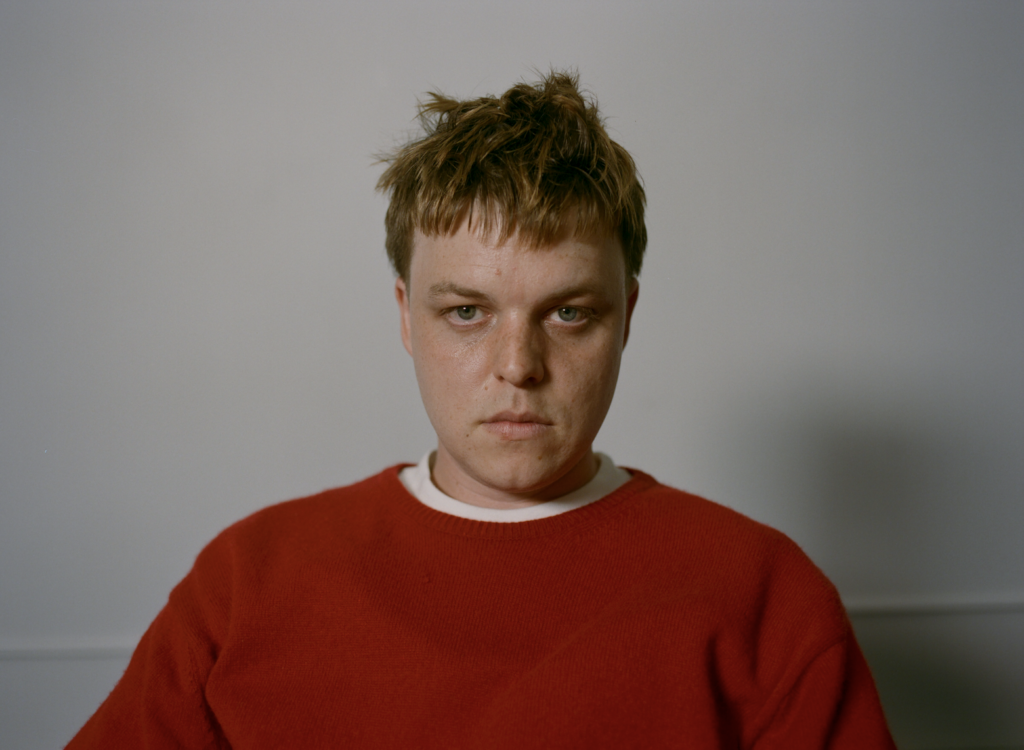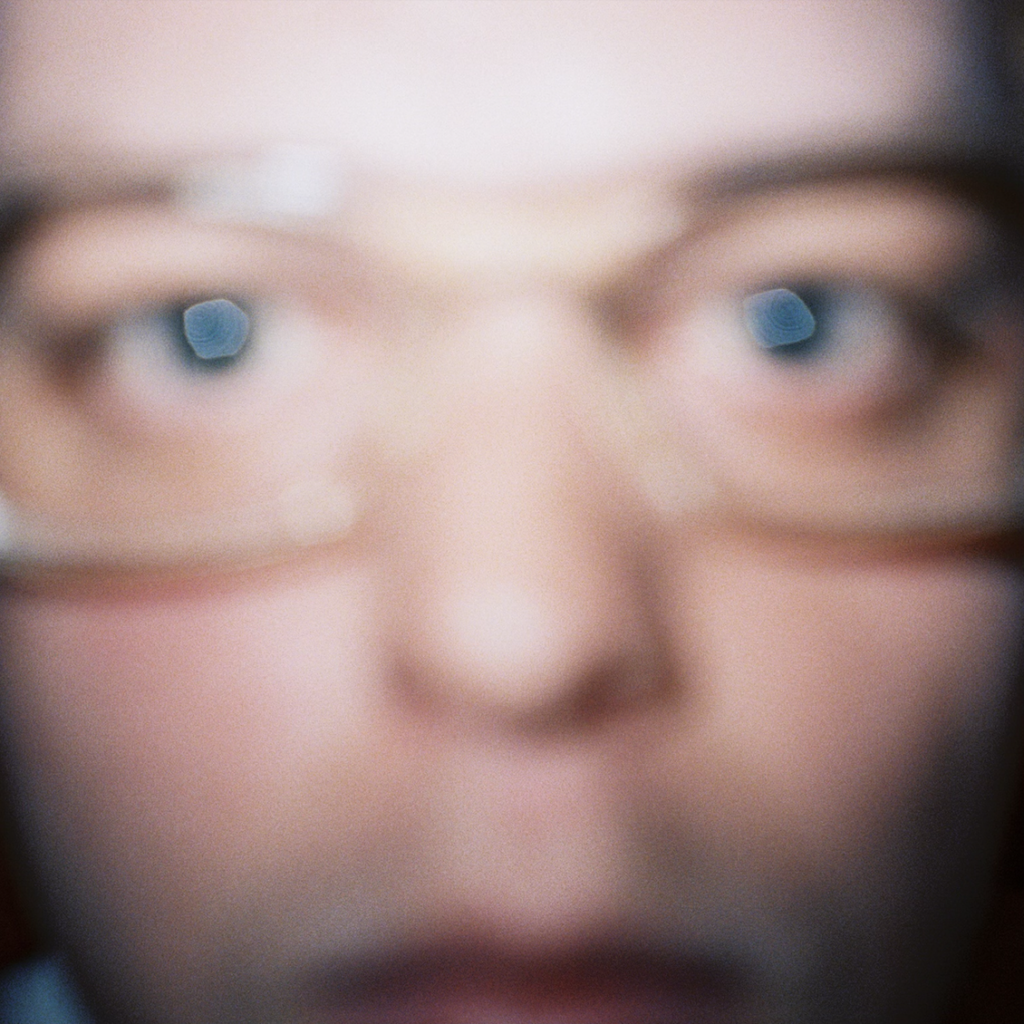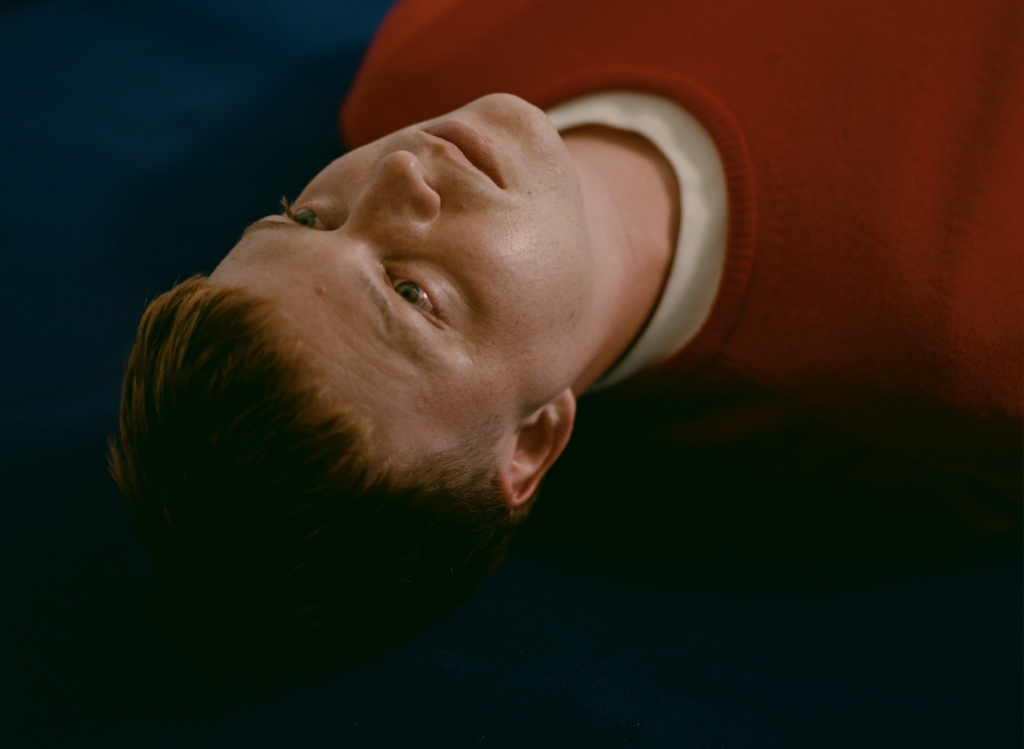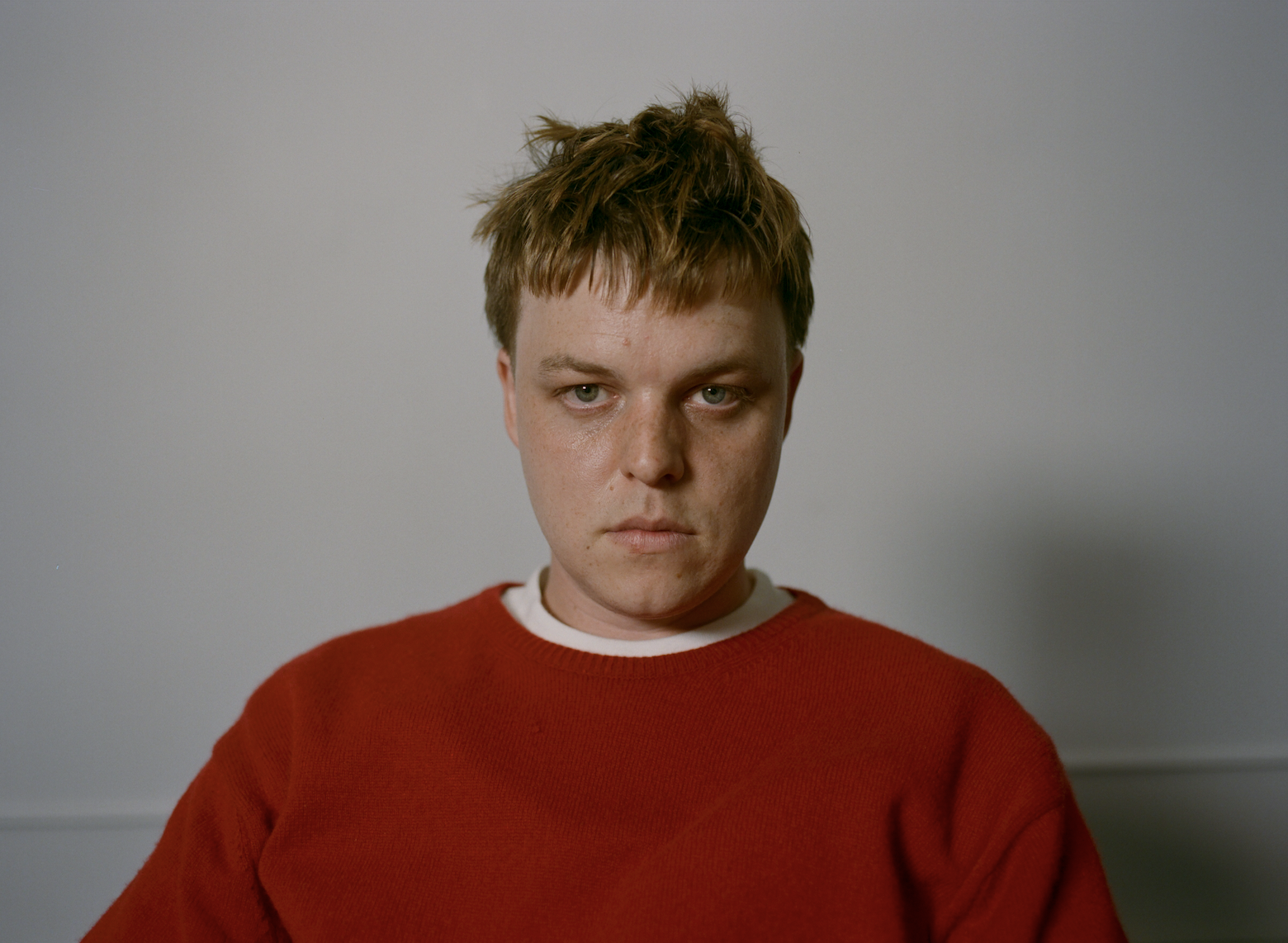I don’t know if there was ever such a thing as a “casual” Brockhampton fan. Either somehow the sprawling alt-hip-hop collective that took off in the mid-2010’s and ended in 2022 didn’t register on your radar, or you were in deep. The self-styled “boyband” – a term founder and de facto leader Kevin Abstract (Ian Simpson) insisted upon, in an effort to redefine it for a more inclusive and less toxic era – was proudly genre-defiant. Musically thrilling and a cultural phenomenon, they touched fans deeply, and such was the belief in Brockhampton that plenty of tears were shed when the group announced in early 2022 that they would be going on “indefinite hiatus” by year’s end.
One sensed that Abstract had lost interest in the group in the way a child grows tired of an old toy. Except that this change of heart impacted a dozen-plus other young men. Brockhampton’s denouement felt both sudden and drawn-out, the ten months between the announcement and the group’s two final, heart-tugging albums The Family and TM only included a handful of live shows and felt at times like a funeral march. When their journey came to a close, the most obvious question was: what’s next?
Not so much for Abstract, who had already put out solo LP’s during the band’s tenure. But with such a wealth of talent within the collective you knew that eventually solo projects would come. Sure enough, 2023 and 2024 have seen releases from Merlyn Wood (reuniting with former bandmate Ameer Vann), Dom McLennon and Matt Champion, who dropped the excellent Mika’s Laundry. Now, it’s JOBA’s turn.

The beloved singer and rapper born Russell Boring regularly brought falsetto melodies and inspired rap verses to Brockhampton, careening from manic and wacky to sentimental and tortured. He was an undeniable fan favorite. But nothing in his decade-plus of work with the group could have prepared fans for the bold, richly musical work – “compositional” is a word he prefers – that JOBA’s debut solo album offers. Out September 13th, it’s not so much a departure as a re-introduction, as suggested by its title, JOBA’s given name of Russell Boring.
When its lead single, the shape-shifting four-and-a-half-minute beast “American Fever,” dropped in the spring, the unanimous reaction was a, “We are not in Brockhampton anymore.” Indeed, the only thing the nine tracks on Russell Boring share with JOBA’s musical alma mater is a rejection of genre constraints. Broadly, the album leans into classic sounds: jazz, funk, shimmery 70’s soul, but it does so with modernity. Piano–JOBA’s first love–dominates, and ranges from gentle and cabaret-ready to honky tonk, joined by Wurlitzer organ, harpsichord, strings, and, notably, horns, courtesy of C.J. Camerieri (Bon Iver, Sufjan Stevens), who delivers Beatlesque trumpet fills on “Doormat” and “American Fever.”
Vocally, JOBA’s high falsetto – a signature in the Brockhampton days – has never been stronger and clearer, but he also plays with plenty of ranges, evoking electic singers from Perfume Genius’ Mike Hadreas to Michael Bublé to Elvis, on “American Fever.” Producers Rex Kudo and Jason Lader formed his team, as well as Benny Bock (Orville Peck, Vince Staples, Blake Mills), who JOBA calls “probably my favorite musician.” Lyrically, while he mines dark, desperate images on the tracks “Ghost” and “Doormat,” salvation is found in love, on “Emerald Eyes” and “New Beginnings,” while “American Fever” casts a jaundiced eye on society’s contradictions.
If, upon hearing, Russell Boring longtime fans wonder, “Where has this JOBA been?” he insists it was there all along. Boring, whose artist alias is a nickname given to him by his brother, sang in choir as a kid (“It was therapetutic!), and discovered his first love was in music engineering, recording friends in a studio in his parents’ home in The Woodlands, outside of Houston. He found inspiration in the musicianship of rock and soul artists of decades past, but Brockhampton, with its emphasis on lyrical gymnastics, proved a sonic detour for him.
Besides rediscovering his musical voice, Russell Boring also represents an artist growing up, and coming to a zen understanding that we don’t – and can never – have all the answers. The same performer who spit Brockhampton bars about anxiety, mood stablizers, voices in his head, a nagging teacher, fear of commitment, and aversion to fake people seems to have found a new peace of mind.
Ten years ago, he and his mates moved from The Woodlands to San Marcos, Texas, to begin the noble experiment and cultural comet that was Brockhampton. Less than four years ago, on Brockhampton’s “The Light,” his rawest lyric to date, in the wake of his father’s tragic suicide, JOBA declared himself “a broken man.” What a joy it is to see him today, if not healed – are any of us, really? – then newly invested in life and in a musical chapter that is only beginning. As he told me in an hourlong Zoom chat two weeks before the release of Russell Boring, it’s no accident that his upcoming, three-city tour to showcase the LP is called, simply, SMILE.

VMAN: Russell, congratulations on this beautiful new record, I can’t say enough good things about it.
JOBA: Thank you! I am really proud of it.
VMAN: You obviously spent the better part of ten years putting out music with Brockhampton, doing promo and touring the world, et cetera, it’s not new. But having it all on you and the record riding on you, and doing what we’re doing right now. Is this a whole new animal for you, and is it exciting or anxiety-inducing? Or do you just feel relieved?
JOBA: I would say all of the above? There is certainly more responsibility, more work, more things to consider and decisions to be made. With that, moving through it all, it is getting easier. And I guess my trajectory, or my vision, is becoming clearer? I can’t seem to be too prepared, you know? But I am very relieved. And excited!
VMAN: I know the tour is still a little over a month away, are you already in the process of planning and rehearsing, and are you going out with a full band?
JOBA: Yeah, going out with a full band. It’s a five-piece, including myself, so keys, drums, guitar, bass, and then my buddy’s gonna be joining me in New York, for horns? And yeah, for the most part it’s the core components of a rock band.
VMAN: I imagine people will use words like “comeback” or “re-start” or “re- introduction” or “next chapter” for this project. If you were to characterize it, how do you see it? Is it just maybe, just an evolution?
JOBA: That’s a good question, I would say it’s the beginning. Yeah it certainly feels like an evolution as well? I guess both terms fit. It’s hard for me not to take into consideration my career thus far, but it is my first solo project, and a drastic departure from what I am known for, so I would call it a beginning. I think the Brockhampton collaborations and career – it was always pretty different from what I had first envisioned myself doing? And this being more, long-form, musical – it kind of reaffirmed what I wanted to do. I would say it was pretty clear in what it was going to be. I wasn’t totally sure, but yeah, the essence of the album, just being very forthcoming, and more compositional and musical.
VMAN: And at the same time I guess what you might call the glass-half-empty side of your situation when the group ended, which is something you said in the press release about the album, was that you felt kind of adrift. I think the words you used were, “I just wasn’t sure who I was at that point.”
JOBA: For sure.
VMAN: There was a ten-month gap between the announcement that the group would be ending, to then to the final records coming out, The Family and TM. But I imagine you probably knew there was an end point longer than that. Had you already kind of mentally prepared for things to be winding down? Or did it feel kinda like the rug had been pulled out from under you?

JOBA: Yeah, no, I wasn’t preparing in an optimistic way. I was focused on as you say, the glass half-empty, unsure of how I would proceed. Just the little things, the simple things, like starting a YouTube channel, just all the time that passed. You know, sometimes time can feel – wasted? Which is kind of silly to say, but as things concluded, I did look back and I had some regrets about how I could have been more proactive, and you know, setting myself up for success, post-Brockhampton. I think it was more daunting than anything. And I just wasn’t really prepared, it felt like.
VMAN: On the last track on The Family, Ian [Kevin Abstract] shouts out some of you by name and your individual strengths: Merlyn’s energy, Dom’s lyricism, Matt’s perfectionism, and with you, it’s “JOBA, you’re the most musical motherfucker.” Maybe it’s really a question for Ian, but what did that mean to you?
JOBA: I mean, it was very sweet of him to say that. I’ve always been a pretty musical guy. Uh, you know I was a choir nerd, singing in chamber choirs, loved jazz and always loved the piano. Grew up playing in bands, and I just have always had a knack for music!
VMAN: You’re full-on singing on this record like never before, and I think people will love it. Of course, you both sang and rapped verses in Brockhampton. But rapping wasn’t something that initially came naturally to you?
JOBA: Absolutely not, no. Yeah when we were working on some of our earlier albums, I would pull my hair out in the corner! Cause everybody else would just rap. And I always enjoyed just sitting down and playing music, but the way the band moved, it was, you know, there’s the hot mic and beats and eight-bar loops and you would just say what’s on your chest. And you just spit.
VMAN: So that was intimidating at the time?
JOBA: It was. When we put out “Face” [from debut album SATURATION, 2017] – that was one that I started, and that kind of gave me the space to express myself, when everything was happening so quickly? So I would say out of the gate I kind of sang, mostly, and then as it went on, I stepped more into the lyrical, rapping thing. But it happened over time.
VMAN: The decision to self-title this album, after your own name, Russell Boring, kind of signals to me a new beginning as well. Do you see JOBA and Russell as two kind of distinct personas? And was JOBA ever in a sense a character?
JOBA: You know I’m not really sure. The truth is, some days they’re completely different, and sometimes they’re the same, and I am okay with that. I would say they are the same? I think JOBA can be a character, and still be the same. There was a time when a lot of my identity was wrapped up in the fast-moving, touring experience. And it kind of distorted my understanding, of self? And I definitely took a look at that, and found that I was putting a lot of self-worth into engagements, fan interactions, views, you know, all the things that kind of come with the digital landscape of today? And I had to really just kind of pull the e-brake and kind of get to the bottom of, what do I value in life, what truly matters to me, and what is happiness, and what is success, you know? And JOBA is all those things, but Russell understands those things. So there is a distinct difference between the two, but they feed into each other.
VMAN: But when you decided to call this album Russell Boring – it felt to me like you were signaling to people like, I want you to get to know this person, this artist. You know what I mean?
JOBA: Sure, yeah it’s funny, naming the album after my legal name feels like a tattoo. It’s like – I can’t run from me. You know? And I think I was. I know I was. I was certainly running from who I am.
VMAN: I don’t want to mischaracterize the sound of the record, but broadly, this jazzy, soulful, funky orientation – did it evolve over time? Did you already know before you linked up with you collaborators that it was kind of a place you wanted to work from, having it piano-based, having the horns, strings and more?
JOBA: Yeah I did. I listened to a lot of Quincy Jones, and a lot of The Temptations. All the music that I really love is outfitted by orchestration, bombastic horns, the energy of live recording, floor takes? So I always kind of had that vision. I wanted all those components that I love in music, as well as some synth exploration. But as far as the jazz nature of my voicings? It always kind of stems from singing in choir. Cause if you sing in a choir you have to be able to hear the person behind you, in front of you and to the sides of you? And that in turn kind of taught me how to mix, as well, but also how to pick out voicings. So I kind of started out around piano.
VMAN: Benny Bock, Rex Kudo and Jason Lader were your main collaborators, three guys whose CV’s are a real mix of jazz and hip-hop and rock credits. Is it fair to say they each brought something different to the project?
JOBA: They definitely did. They brought their own essence, and spark. I’ll say Benny Bock is probably my favorite musician. The first time we ever worked on anything, we made a song immediately, fully improvised. And we’ve done that I think three times now. And Rex – our producer in Brockhampton Romil [Hemnani] had met Rex and he said, “Hey I think you should meet this guy Rex Kudo, I think you guys would get along.” Rex just really believed in me, which meant the world at the time. And he just supported my ideas. There’s always kind of a creative dynamic, when you’re working with a lot of people, where sometimes we can silence ourselves. We can silence our ideas. Cause I had all these ideas, but I would just keep em inside, very guarded with them and like, fragile?
VMAN: You mean, a fear of being judged?
JOBA: I’m not as much anymore. But around the time that we met I definitely was, and after everyone left, I was like, “Maybe you should do this, and do this, and do that…” and I had all these ideas that just made the whole thing click? And he was like, “Why didn’t you say anything?” and I was just like, “Man, I just, I didn’t want to, I guess, hurt anyone’s feelings?” You know? Like I’m very – I can be very certain, and dry, and blunt? And he told me, “Man you’re such a great artist. You should never be afraid to share your ideas.” And you know, you can be in a room with someone who has accolades, and hit records, or whatever, but you can still have ideas that are worthy. So it was kind of a practicing ground for me to kind of find my own voice, with other musicians, outside of Brockhampton, which was very lyric-focused, you know?
VMAN: Lyrically there seem to be several moods on the record. “American Fever” throws some sharp elbows and comments on culture, but there are other songs that feel redemptive and grateful. Would you say there is an overall lyrical theme going on?
JOBA: I think I would just say love? And ups and downs? There’s kind of a great un-resolution to life, in my experience. And it’s just kind of making peace with that.
VMAN: The album is bookended by these lovely but kinda dark tracks “Ghost” and “Gospel of the Moon.” The first one seems to be talking about drugs, with “Ooh I’m haunted” and “I’ve seen some things and prowled the streets.” But, not tortured? And then “Gospel of the Moon” kind of takes you to church and you’re “Howling at the moon, rising, crying, shining, surviving.” Do those songs come from any specific place?
JOBA: I would say they come from a lot of frustration. And the questions you’ll never find the answers to? Which, I certainly have a lot that I was trying to get to the bottom of. And you know, there was some self-medicating. But I don’t really know how to summarize it, other than this a pretty wild experience that we’re all sharing. You know, life comes with a lot of energy and experience and wonder and open- endedness. But just to answer your question quickly, I think it’s like the wit’s end of self-reliance. And just, abandoning that notion that you can figure everything out on your own. And you can do it all by yourself.
VMAN: Some of the songs do depict you in what seems like a dark place. I mean, on “Doormat,” what is it, “I don’t know why I try anymore / Scraping all of my dimes / Drunk on the boulevard”?
JOBA: Yeah! [chuckles]
VMAN: It sounds pretty visual and pretty specific to a time.
JOBA: It is!
VMAN: I don’t know how much you care to elaborate, but there’s another point where you say, “Just so you know, I’m doing better than I’ve ever been!”
JOBA: Um, yeah, you know – love is a powerful thing, and you know, “I’m doing better than I’ve ever been” – that’s kind of the power of our mind. I mean yeah, there was a rock ‘n roll period of my life where I was out there skating, bombing hills at three in the morning, and just – but it’s a love song, that one. It certainly is one of those songs that speaks for itself.
VMAN: As for love songs, a couple of tracks feel to me like you’ve found some kind of salvation in either a person or a relationship. “Emerald Eyes” says, “love is all we’ll ever need.” And then “New Beginnings” – when I first saw the title I thought, “Well, he must be talking about this new chapter of his life.” But really it seems to be more a song of gratitude to a person. “A lifetime came and went and then I found you…”
JOBA: Yeah, “Thank God I found you.” Well, that’s an interesting one, because that song is about someone specifically, a romantic relationship, as much as it is about myself.
VMAN: So, “Thank God I found you,” might be you talking to yourself?
JOBA: Yeah, thank God I found you. You know, because I feel like we meet ourselves, time and time again, in life. And there’s people that love us, regardless. There’s people that are anchors in our lives.
VMAN: For sure. Though I think the key is to not invest too much in it, because if you put everything into that, then it becomes your sole source of happiness or despair, you know?
JOBA: A hundred per cent. And you know, that’s what the album’s about, by the way! What you just said. Just learning that! Over and over.
VMAN: You say that there was a period when your life was “rock n roll.” The Brockhampton fans well remember some of those early hard-hitting verses, talking about mental health and taking mood stabilizers on “Sister/Nation” [2017], doing drugs because you “couldn’t last a day” in your head on “J’Ouvert” [2018], and even admitting suicidal thoughts on “San Marcos” [2018]. I realize they were six, seven years ago, but you seem to be in such a different place now from that JOBA.
JOBA: A hundred per cent.
VMAN: And what do you attribute that to?
JOBA: Uh, time. God. You know, the truth? I was very afraid, you know? I was afraid of uncertainty, and failure. And I don’t know, I guess it’s just growing up! Life experience, the people you meet, the conversations you have. You learn about yourself through other people, you know? It’s easy to convince yourself you’re the only one who feels x, y and z, or believes x, y and z. I think also we dramatize things to get a reaction sometimes, as well, you know? Not to say that I always did that, but I think there was a time when we were making so much music back in the day that I was pulling from all my life experience? So, I would say I grew past those things.
VMAN: You’re calling the tour SMILE and I don’t think that’s a word that ever appears on the record. Can you talk a little bit about why? Do you feel a little more like smiling these days?
JOBA: Ideally! I love smiling man, I love seeing people smile. I think smiling is really healthy.
VMAN: You’re gonna hate me for referencing all these old-ass songs, but it reminds me of how you say in Brockhampton’s “Ready For War” [2018] – “Open up your eyes and you’ll find you will fly / Just smile sometime.”
JOBA: “Welcome to the real world”
VMAN: Exactly. Do you have any expectations as far as the reaction to this record, and the tour?
JOBA: You know, obviously I want people to love it? I have a lot of desires for it. But at the end of the day, I am just happy to be putting something out. And I am buckled in. And yeah, the next album is already in the works! I’m really excited.
JOBA’s Russell Boring album is out September 13 . His SMILE tour, playing Los Angeles, Chicago, and New York, begins October 2nd.
Discover More




